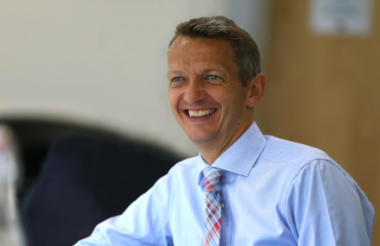Charities could receive £1bn in extra public donations thanks to households saving more money during Covid-19, the former Bank of England chief economist Andy Haldane said today.
However, Haldane, who is also co-founder of the charity-sector think tank Pro Bono Economics (PBE), warned that this represented a tiny proportion of the total savings built up during the pandemic.
It will take “imaginative thinking” from both Whitehall and the charity sector to unlock more donations, he said, adding that the government could consider reform to Gift Aid or other match-funding schemes.
Haldane was speaking at a conference arranged by the charity Pilotlight, and drawing on new research from PBE titled Setting Lockdown Savings Free.
Haldane: ‘Significant pool’ of savings
The PBE research concluded that households are likely to donate between 0.2% and 0.5% of excess savings built up during the pandemic. That would amount to between £500m and £1.2bn for the sector.
This is based on estimates that the total extra money saved by households during Covid-19 will eventually reach between £200bn and £250bn.
In his speech, Haldane said: “The Covid crisis has generated a significant pool of extra savings among a number of households, especially older and richer households, due to restrictions on spending.”
At the same time, he said, savings had gone down among “poorer and younger households”, and the number of households living in debt had gone up.
“With a significant financing gap for charities to bridge, this begs the obvious question of whether more could be done to mobilise that pot of savings for charitable good.”
Gift Aid reform
PBE’s report says that when the potential extra giving is “set against the £10bn funding gap we estimate the sector experienced in 2020, and the creation of so much need of charitable support, there is a strong case to be made for these fortunes to be spread more evenly”.
It continues: “To capitalise on the window provided by the pandemic savings windfall, a time limited intervention, such as a Recovery Gift Aid incentive to increase giving from lockdown savings, could be considered.
“For example, a temporary uplift in the match element of Gift Aid from 25p to 30p for every £1 donated could increase income for charities by around an additional £600m per year, potentially doubling the projected flow of lockdown savings to the charity sector through a combination of increased government contributions and additional public giving.”
Match-funding and nudges
The report adds that the government might consider introducing a match-funding programme as an alternative to Gift Aid reform.
It says: “This essentially mirrors the most influential element of Gift Aid, with donations shown to be around four times more sensitive to changes in the ‘match’ element of Gift Aid than the ‘rebate’ element.
“Importantly, this step would not require the legal changes needed to amend the Gift Aid match rate.
“A publicly-funded match programme, particularly one coupled with a campaign that leant on behavioural insights about peer effects and social norms, could be a particularly effective way to redirect a proportion of lockdown savings towards charities.”
Describing the use of behavioural insights, the report continues: “This increase in giving from the public could be further supported by a coordinated campaign led by a coalition of charities, drawing on behavioural insights about what drives giving beyond financial incentives.
“Messages that highlight the relatively fortunate position of those that have windfall savings, positioned around how others in a similar position are planning to use part of their excess savings to support the charity sector and why this is particularly important during the recovery, could help to encourage even more giving from this group over this critical period.”
Mobilise
Speaking at the event, Haldane said: “Perhaps there are better schemes out there to mobilise these moneys.
“But the key point is that these are examples of the kinds of imaginative thinking I think are now needed.
“Covid-19 has generated an inflection point for societies and, potentially, for the charity sector too.
“It is hard to think of a better time to be unlocking the potential of the latter in support of the former, to enhance the power of charity.”
Haldane will take over as the new chief executive at the RSA in September.
Related news











